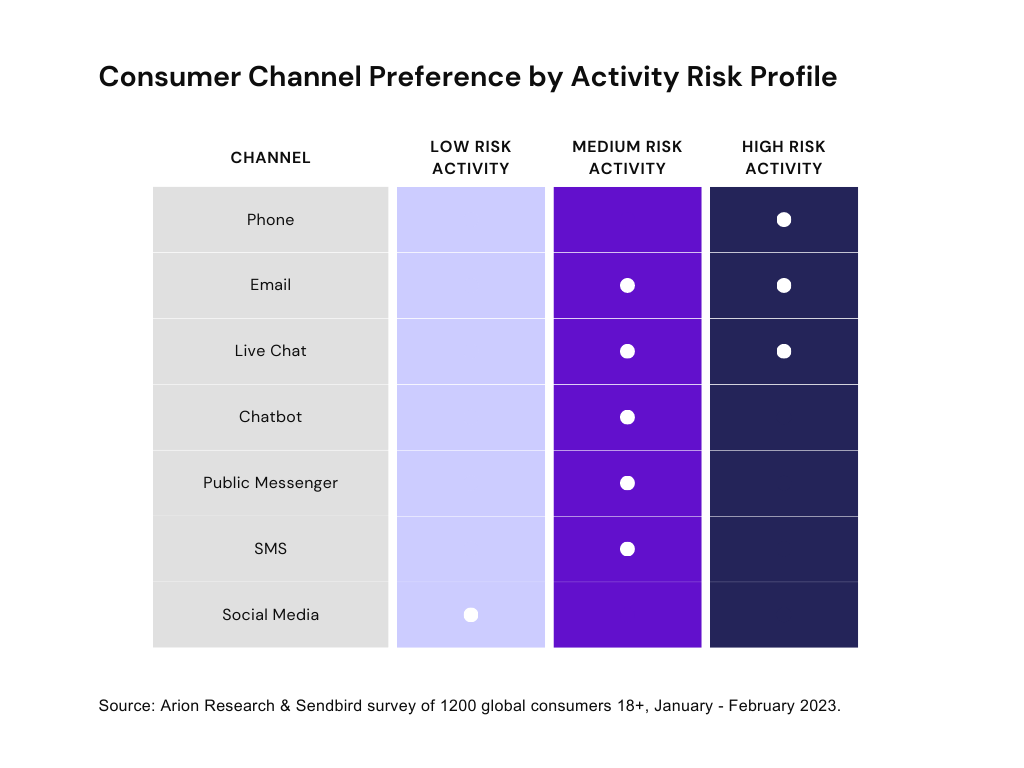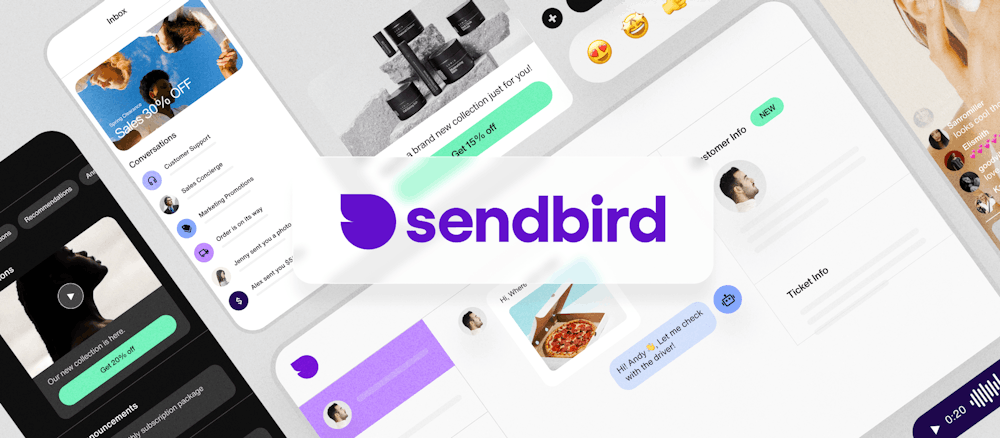New report shows that consumers regularly miss brand communications

As Sendbird has expanded its platform to support business-to-consumer communication, we’ve become more aware of the complexities of all the channels brands must manage and coordinate as part of their omnichannel strategy.
The point is to meet the customer where they are, but how can brands consistently meet customer expectations?
To answer this question, our curiosity naturally shifted to the customer. We wanted to find out how customers prefer to communicate with brands.
So, we commissioned a global consumer study with Arion Research that included an online survey of 1200 mobile consumers aged 18+ in 14 countries.
The survey found that half of all consumers say they miss or ignore business communications regardless of the channels they use.
Get the full results of the study.
Utilize multiple communication channels
We knew it was hard for businesses to stay connected with customers, but this discovery only highlights the importance of moving to an omnichannel communication model that hits your customers at every touch point.
Case and point: the survey also found that when businesses offer consumers' their preferred communication channels, customers are more likely to pay attention (75%), remain loyal (82%), buy more (69%), and become advocates (66%). Clearly, the rewards are great when brands get it right.
But how do brands know what is right?
Consumers’ preferred channel depends on the type of online activity and its risk profile. For higher-risk activities like banking, consumers prefer more traditional channels like email and phone. These channels are also preferred by consumers for activities handling sensitive personal data, like healthcare.
For activities like shopping, email and public messenger were preferred channels by consumers.

And no matter the channel or activity type, consumers look for personalized experiences with brands. For example, while SMS is not a highly preferred channel for learning about new offers or special discounts, one in four consumers say they find value if the texted offer is based on their location or time of day.

Support customers in real-time
When consumers have questions or need help, they seek immediate responses from businesses. According to our survey, 57% of consumers chose to switch brands or not renew a subscription because when they contacted the business they were put on hold.
This has led many businesses to offer chatbots for immediate customer assistance. But even with the recent AI advancements in chatbots, consumers seem to remain skeptical of these solutions.
50% of consumers we surveyed say they will tolerate bots starting the support chat but want to reassurance that they can and will be transferred to a live human agent if needed. According to this survey, a bad customer service experience with a chatbot caused 1 in 4 consumers to switch brands or not renew a subscription. Still, whether bot or human, consumers prefer to chat in real-time with businesses for support.

Allow customers to set channel preferences
This new research proves that how businesses communicate with consumers is the foundation for building relationships. And consumers prefer to manage business interactions on their own terms, choosing communication channels carefully depending on the type of activity, their level of trust, and perceived personal risk.
We'll discuss the results further with Arion Research Chief Analyst and CEO Michael Fauscette on Wednesday, July 26th in a live event hosted by TechCrunch. We hope you join us as we dive deeper into this new research.













